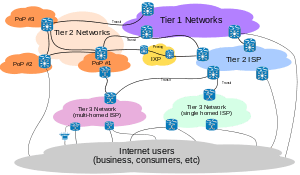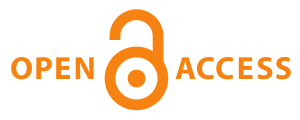
Will 2014 be the year that the Internet is reined in?
When Edward J. Snowden, the disaffected National Security Agency contract employee, purloined tens of thousands of classified documents from computers around the world, his actions — and their still-reverberating consequences — heightened international pressure to control the network that has increasingly become the world’s stage. At issue is the technical principle that is the basis for the Internet, its “any-to-any” connectivity. That capability has defined the technology ever since Vinton Cerf and Robert Kahn sequestered themselves in the conference room of a Palo Alto, Calif., hotel in 1973, with the task of interconnecting computer networks for an elite group of scientists, engineers and military personnel.
The two men wound up developing a simple and universal set of rules for exchanging digital information — the conventions of the modern Internet. Despite many technological changes, their work prevails.
But while the Internet’s global capability to connect anyone with anything has affected every nook and cranny of modern life — with politics, education, espionage, war, civil liberties, entertainment, sex, science, finance and manufacturing all transformed — its growth increasingly presents paradoxes.
It was, for example, the Internet’s global reach that made classified documents available to Mr. Snowden — and made it so easy for him to distribute them to news organizations.
Yet the Internet also made possible widespread surveillance, a practice that alarmed Mr. Snowden and triggered his plan to steal and publicly release the information.
With the Snowden affair starkly highlighting the issues, the new year is likely to see renewed calls to change the way the Internet is governed. In particular, governments that do not favor the free flow of information, especially if it’s through a system designed by Americans, would like to see the Internet regulated in a way that would “Balkanize” it by preventing access to certain websites.
The debate right now involves two international organizations, usually known by their acronyms, with different views: Icann, the Internet Corporation for Assigned Names and Numbers, and the I.T.U., or International Telecommunication Union.
Icann, a nonprofit that oversees the Internet’s basic functions, like the assignment of names to websites, was established in 1998 by the United States government to create an international forum for “governing” the Internet. The United States continues to favor this group.
The I.T.U., created in 1865 as the International Telegraph Convention, is the United Nations telecommunications regulatory agency. Nations like Brazil, China and Russia have been pressing the United States to switch governance of the Internet to this organization.
Dr. Cerf, 70, and Dr. Kahn, 75, have taken slightly different positions on the matter. Dr. Cerf, who was chairman of Icann from 2000-7, has become known as an informal “Internet ambassador” and a strong proponent of an Internet that remains independent of state control. He has been one of the major supporters of the idea of “network neutrality” — the principle that Internet service providers should enable access to all content and applications, regardless of the source.
The Latest on: Internet
[google_news title=”” keyword=”Internet” num_posts=”10″ blurb_length=”0″ show_thumb=”left”]
via Google News
The Latest on: Internet
- Thousands of Oklahomans at risk of losing affordable internet due to program's upcoming endon May 9, 2024 at 6:30 pm
Thousands of Oklahomans are at risk of losing affordable internet as a federal program nears its end. Over 350,000 Oklahoma households will soon receive letters in the mail – if they haven't already – ...
- L.A. County to offer discounted home internet to lower-income residents in some neighborhoodson May 9, 2024 at 5:58 pm
Years in the making, L.A. County's Community Broadband Network is set to launch this year in East L.A., South L.A. and Boyle Heights.
- Why does everything on the internet look the same now?on May 9, 2024 at 3:18 pm
From typefaces, websites and logos to buildings, cars and home decor, a handful of internet and design industry trends are making everything look more similar.
- As millions lose federal help to pay for internet, some areas aim to fill the gapon May 9, 2024 at 2:59 pm
In the small North Carolina town of Bryson City, just outside Great Smoky Mountains National Park, Kathleen Wain raises two grandchildren in her subsidized-rent apartment, taking them to sing in a ...
- Despite big tech lobbying, Maryland passes two internet privacy billson May 9, 2024 at 2:35 pm
The Maryland legislature passed two bills over the weekend limiting tech platforms’ ability to collect and use consumers’ data. Maryland Governor Wes Moore is expected to sign one of those bills, the ...
- T-Mobile delays free internet loophole fix after running into a problemon May 9, 2024 at 1:40 pm
T-Mobile has reportedly delayed the roll out of address verification on gateways, as well as the launch of the new Away plan.
- Comcast’s new NOW prepaid Internet looks surprisingly compellingon May 9, 2024 at 1:07 pm
Comcast, which has garnered a reputation for poor customer service, has a new prepaid unlimited broadband plan called NOW Internet that, at $30-$45 per month, actually looks good.
- Internet casino gambling is the future of U.S. betting, industry execs sayon May 9, 2024 at 9:44 am
But recently, some casino executives have said they believe online gambling is hurting the revenues of brick-and-mortar casinos. Rob Norton, president of Cordish Gaming, which owns physical casinos ...
- Internet sleuths say Noelia Voigt left hidden message in Miss USA resignation: ‘I am silenced’on May 9, 2024 at 9:16 am
Eagle-eyed fans of the Miss USA pageant noticed something unusual about 2023 winner Noelia Voigt’s resignation statement about her mental health on Instagram. The first letter of each sentence spelled ...
- The Nudes Interneton May 8, 2024 at 3:09 pm
The constant and absolutely unavoidable nudes on X are partially the product of a spam operation, the purpose of which appears to be, as with any spam operation on the internet, to eventually separate ...
via Bing News










